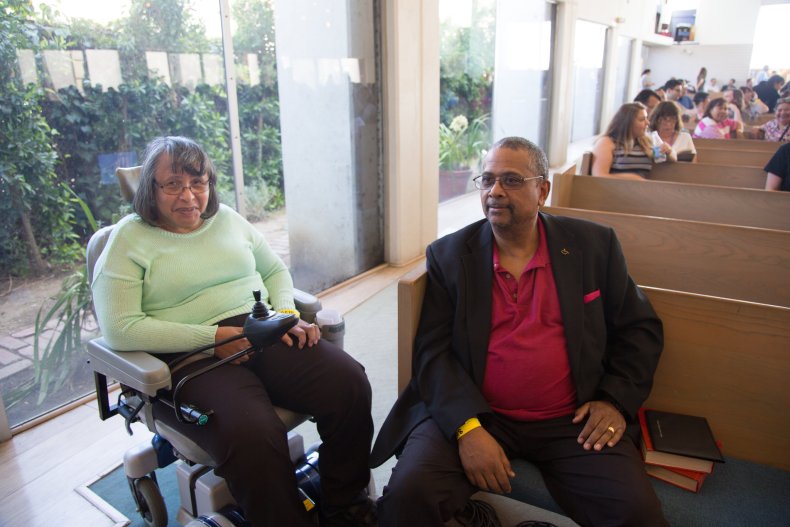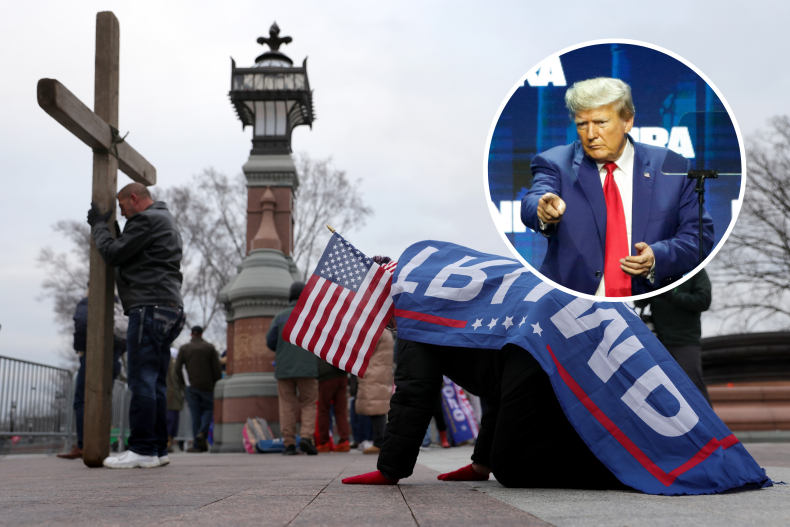LOUIS JAMES , MEMBER OF SEIU 2015,
ON 4/21/23
When I married 37 years ago, I planned to travel the world with my beautiful wife Tina. What I didn't anticipate was how life's challenges would impact our adventures.
I became the primary caregiver for my wife 14 years into our marriage, when she became a quadriplegic. She relies on a motorized wheelchair, and I worry about having adequate support services when traveling through our nation's airports.
We take nonstop flights to avoid long waits for assistance and hectic rushes to the next terminal. There's not much we can do to make sure Tina's wheelchair is consistently handled properly at the airport. Wheelchair and mobility devices are often dismantled before being stowed in the cargo section of the plane. On a good trip, Tina's $30,000 wheelchair will be returned in the same condition as when it was handed to a baggage attendant. But other airport travelers may not be so lucky.
This is one of the reasons why I'm one of many SEIU members urging Congress to pass the Good Jobs for Good Airports Act (GJGA). I'm proud to support this legislation because it will help stabilize air travel and make airports more accessible for passengers like my beautiful wife.

Staffing turnover and training have recently been cited by the U.S. Government Accountability Office as one of the driving forces behind inconsistencies in wait times for wheelchair assistants and other barriers for flyers with disabilities.
Good Jobs for Good Airports would help address these issues by establishing wage and benefit standards for cabin cleaners, wheelchair attendants, and other covered airport service workers.
Far too often, this service workforce isn't paid enough to support their families or pay bills. As many airlines' profits increase, many of these workers have no employer-sponsored healthcare, no paid sick days, and inadequate protections on the job. As a result, many airports are chronically understaffed and unprepared to handle skyrocketing travel demands efficiently.
A new report from the Center for American Progress found that employee turnover rates significantly improve at airports and other places of employment that adopt wage standards similar to those included in the GJGA.
I would consider passage of the GJGA to be a big win because understaffing not only hurts travelers with disabilities; it hurts airport workers like Rio Bryant. Rio works as zone lead in the wheelchair department at the Hartsfield-Jackson Atlanta International Airport, where he sometimes works 70 to 80 hours a week just to make ends meet. At a recent press conference on Capitol Hill, he told lawmakers, "I know my job is really important, but I don't feel airlines value or respect us for the work we do."
While traveling for meetings and other events, I can't help but notice workers like Rio who are often overlooked, even though they're vital to keeping things running. Much like the home care industry, the aviation service workforce is powered by largely Black, brown and immigrant workers.
The pandemic has shown us that low wages and poor working conditions are fueled by systemic racism. Sadly, wages for many airport service workers across the industry have remained stagnant for nearly 20 years.
Airlines benefit from billions of our tax dollars spent on the aviation industry every year. Under the GJGA Act, we could rest assured that more of our public resources would serve the public good and lift up working families.
This bill is a win for people with disabilities and the care providers who love them. And it's a win for workers whose professionalism and kindness help me and Tina travel with dignity.
This is a thank you to the baggage handlers who followed my carefully-written instructions for handling Tina's wheelchair in recent years and the airport workers who went above and beyond to track down an eye-glass repair kit when a screw came loose in my wire-rimmed glasses.
As someone born with Spina Bifida, Rio says he understands the frustration travelers feel when they have to access the support they need. "When you have a disability, you do not want people to feel sorry for you and you don't want to be discriminated against because of how you may look or your abilities. However I see this happening all the time."
If airlines and members of Congress really care about ensuring our nation has a safe, efficient functioning aviation system that benefits every person regardless of their race, economic status, or ability, they should prioritize getting the Good Jobs for Good Airports bill to President Biden's desk.
Louis James is a member of SEIU 2015 and a "never-retired" pastor. He lives in Los Angeles, California.
The views expressed in this article are the writer's own.




